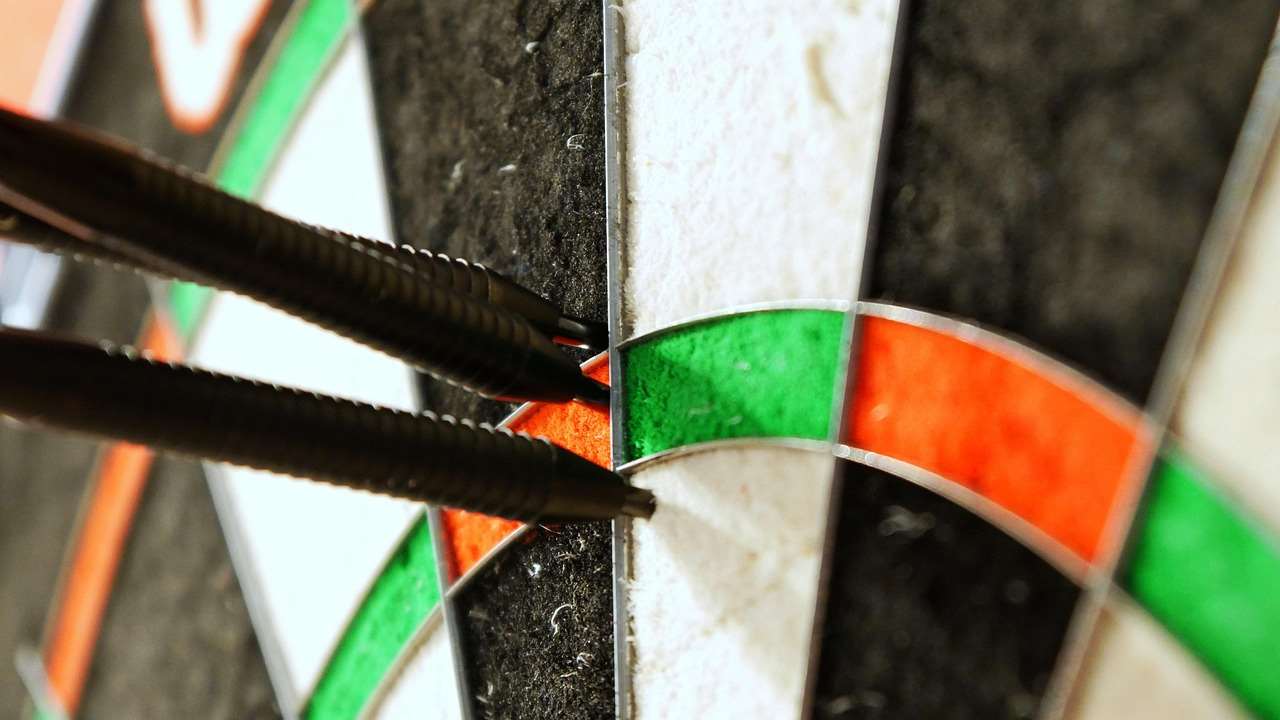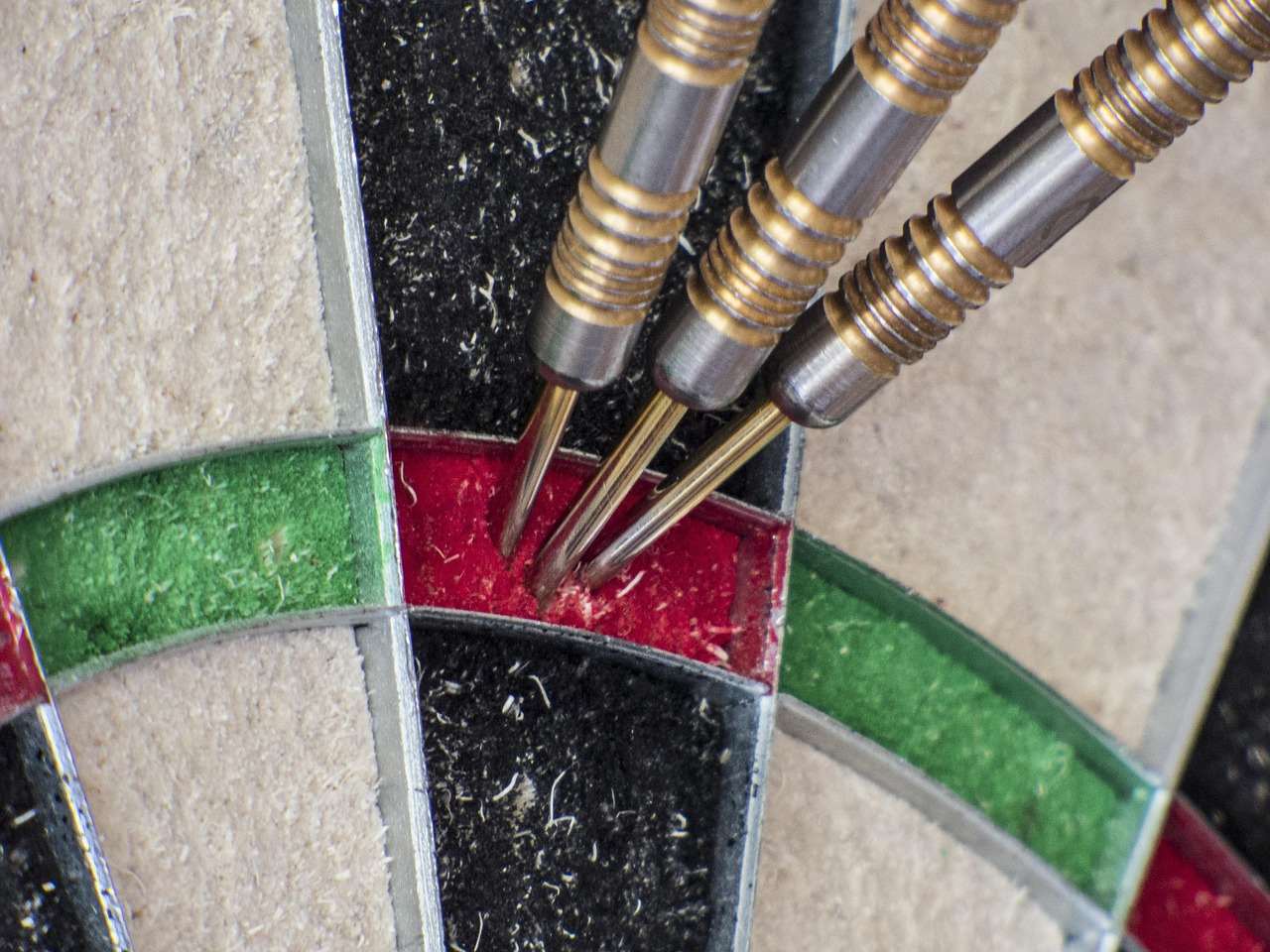The debate rages on, but the simple answer is **yes, darts is a sport**. This article will explore the reasons why, examining the skill, strategy, and physical and mental demands required to excel, while also considering counterarguments and comparisons to other activities.
⚠️ Still Using Pen & Paper (or a Chalkboard)?! ⚠️
Step into the future! The Dart Counter App handles all the scoring, suggests checkouts, and tracks your stats automatically. It's easier than you think!
Try the Smart Dart Counter App FREE!Ready for an upgrade? Click above!
Why Some Argue Darts Isn’t a Sport
Before diving into why darts are a sport, it’s important to acknowledge the common counterarguments. These often revolve around perceptions of physical exertion and the association with pubs and leisure activities.
- Lack of intense physical activity: Critics argue that standing and throwing darts doesn’t qualify as significant physical exercise.
- Pub culture association: The link to social drinking in pubs can detract from the seriousness associated with traditional sports.
- Perceived simplicity: Outsiders may view darts as a simple game of throwing objects, underestimating the technical skill involved.
However, these arguments often overlook the nuanced demands placed on professional dart players. While a casual game with friends might not be strenuous, competitive darts at the highest level requires immense focus, precision, and mental fortitude. The darts premier league showcases these elements every week.
The Case for Darts as a Sport: Skill, Strategy, and Precision
The core argument for why are darts a sport centers on the skill, strategy, and precision required. Here’s a breakdown:
- Exceptional Hand-Eye Coordination: Darts demands an incredibly high level of hand-eye coordination. Players must consistently hit a target that is small and relatively distant, requiring years of practice and refinement.
- Strategic Gameplay: Beyond simply hitting the bullseye, successful darts involves strategic gameplay. Players must calculate scores, plan their throws to set up finishes, and adapt to their opponent’s tactics. This mental calculation adds a layer of complexity often overlooked.
- Fine Motor Skills: Darts involves incredibly fine motor skills. The release of the dart, the angle of the arm, and the consistency of the follow-through all contribute to accuracy. Minor variations can significantly impact the outcome.

Consider a golf swing or an archer’s release. While darts may not appear as physically demanding, the level of control and precision is comparable. Furthermore, top darts players train rigorously to maintain their physical and mental edge. The use of a darts score easy scoreboard is helpful in this endeavor.
Mental Fortitude and Pressure Management
The mental aspect of darts is often underestimated, but it’s crucial for success at the professional level. Players face immense pressure, especially in televised matches with large audiences and significant prize money at stake.
- Focus and Concentration: Maintaining focus and concentration for extended periods is essential. Distractions from the crowd, the opponent, or even internal thoughts can disrupt a player’s rhythm and accuracy.
- Pressure Management: Handling the pressure of crucial throws is a defining characteristic of top players. The ability to perform under pressure separates the elite from the rest.
- Mental Resilience: Bouncing back from setbacks and maintaining a positive attitude are vital. Darts is a game of ups and downs, and players must be resilient to overcome adversity.
Many professional dart players employ mental training techniques, such as visualization and mindfulness, to enhance their performance. This mental preparation further solidifies the argument that are darts a sport, requiring a combination of physical and mental skills.
Comparing Darts to Other Precision Sports
To further illustrate the sporting nature of darts, it’s helpful to compare it to other precision-based activities. Consider sports like snooker, archery, and shooting. These activities share several common characteristics with darts:
- High Degree of Precision: All these sports demand a high degree of precision and accuracy.
- Strategic Thinking: Strategic thinking and planning are integral to success.
- Mental Discipline: Mental discipline and focus are paramount.
While the level of physical exertion may vary, the underlying principles of skill, strategy, and mental fortitude are consistent. If these activities are considered sports, then it’s logical to conclude that darts are a sport as well. The dartcounter virt can assist players in strategizing.

The Physical Demands of Professional Darts
While it’s true that darts isn’t as physically demanding as running a marathon, it’s important to acknowledge the subtle physical demands placed on professional players. These include:
- Standing for Long Periods: Professional darts tournaments can last for several hours, requiring players to stand for extended periods. This can lead to fatigue and strain on the legs and back.
- Muscle Control and Endurance: Maintaining consistent muscle control and endurance in the throwing arm is crucial for accuracy. Repeated throws can lead to muscle fatigue, impacting performance.
- Core Stability: Core stability plays a vital role in maintaining balance and control during the throwing motion. Strong core muscles contribute to consistent and accurate throws.
Many professional dart players incorporate specific exercises into their training routines to improve their physical conditioning. These exercises focus on strengthening core muscles, improving balance, and enhancing muscle endurance in the throwing arm. Different brands of dartboard tor can also subtly affect the game.

Professionalization and Governance
The increasing professionalization and governance of darts further supports its status as a sport. The Professional Darts Corporation (PDC) and the World Darts Federation (WDF) are the two main governing bodies that oversee the sport.
- Standardized Rules and Regulations: These organizations establish standardized rules and regulations for tournaments, ensuring fair play and consistent scoring.
- Professional Rankings and Prize Money: They maintain professional rankings and offer substantial prize money, attracting top players from around the world.
- Increased Media Coverage: Darts has experienced a surge in media coverage in recent years, with televised tournaments attracting large audiences.
The existence of these professional structures and the growing popularity of darts demonstrate its legitimacy as a competitive sport. The option to get personalisierte darts flights allows players to express their unique style, which can contribute to their marketability and fame.

The Subjectivity of “Sport”
Ultimately, the definition of “sport” can be subjective. Some argue that a sport must involve significant physical exertion, while others place more emphasis on skill, strategy, and competition. Where are darts a sport in this spectrum?
- Varying Definitions: There is no universally agreed-upon definition of “sport.”
- Emphasis on Different Aspects: Different people may prioritize different aspects, such as physical exertion, skill, or competition.
- Darts Fits a Broad Definition: Darts fits within a broad definition of sport that emphasizes skill, strategy, and competition.
Even activities like chess and esports are often debated as to whether they qualify as sports. The key takeaway is that the line between “sport” and “game” can be blurry, and the classification often depends on individual perspectives. Using a Darts scoreboard app (https://dartcounterapp.com/) can enhance the playing experience, regardless of whether it’s considered a casual game or a serious sport.
Tips for Improving Your Darts Game
Whether you consider darts a sport or simply a fun pastime, there’s no denying the satisfaction of improving your skills. Here are a few tips to help you elevate your game:
- Practice Regularly: Consistent practice is essential for developing muscle memory and improving accuracy.
- Focus on Your Stance and Grip: A stable stance and a comfortable grip are crucial for consistent throws.
- Develop a Consistent Throwing Motion: A smooth and consistent throwing motion will help you maintain accuracy.
- Aim for Specific Targets: Don’t just aim for the bullseye; practice hitting specific numbers and doubles.
- Analyze Your Game: Identify your strengths and weaknesses and focus on improving areas where you struggle.
Consider joining a local darts league or club to gain experience and learn from other players. Even analyzing dart shaft differences can make a big difference to your game.

Conclusion: Darts – More Than Just a Pub Game
In conclusion, while perceptions may vary, the evidence strongly suggests that darts are a sport. The combination of skill, strategy, mental fortitude, and increasing professionalization firmly places darts within the realm of competitive activities. It requires exceptional hand-eye coordination, strategic thinking, and the ability to perform under pressure. So, the next time someone questions the legitimacy of darts as a sport, you can confidently present the arguments and evidence discussed in this article.
Ready to take your darts game to the next level? Visit your local darts supplier or explore online resources to find the equipment and training tips you need to improve your skills. Whether you’re a casual player or aspiring to compete professionally, there’s always room to grow and enjoy the challenges and rewards of this captivating sport.
Hi, I’m Dieter, and I created Dartcounter (Dartcounterapp.com). My motivation wasn’t being a darts expert – quite the opposite! When I first started playing, I loved the game but found keeping accurate scores and tracking stats difficult and distracting.
I figured I couldn’t be the only one struggling with this. So, I decided to build a solution: an easy-to-use application that everyone, no matter their experience level, could use to manage scoring effortlessly.
My goal for Dartcounter was simple: let the app handle the numbers – the scoring, the averages, the stats, even checkout suggestions – so players could focus purely on their throw and enjoying the game. It began as a way to solve my own beginner’s problem, and I’m thrilled it has grown into a helpful tool for the wider darts community.